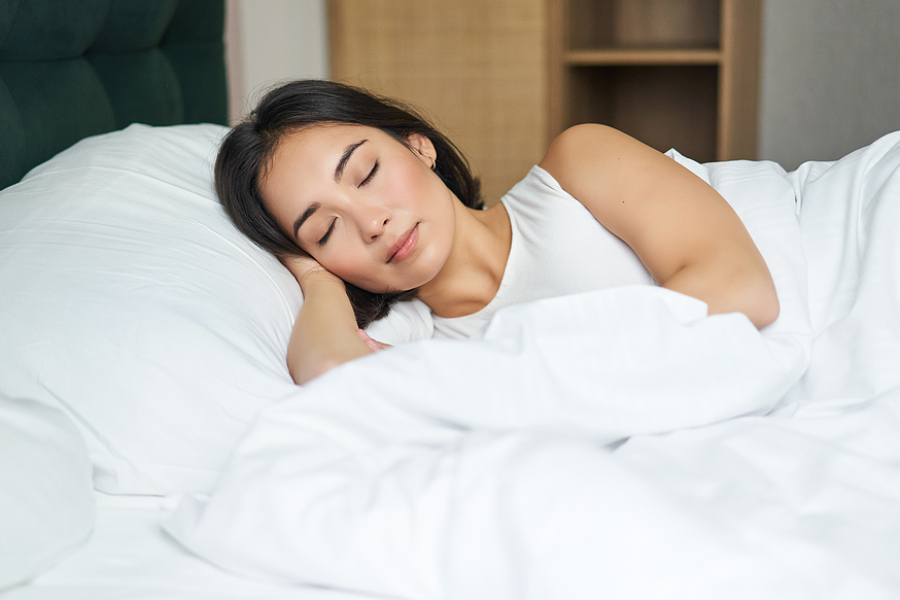If you are experiencing neck or shoulder pain when you wake up in the morning, it may be due to poor posture during sleep. Most of us pay attention to our posture when we move, sit or stand.
Despite that, many of us overlook a major activity – sleeping. On average, we spend 8 hours a day asleep, which is one-third of the day. You may ask, what’s there to gain from sleeping with good posture? Sleeping with a good posture can prevent unnecessary strain on spinal joints and stimulate the parasympathetic nervous system, which promotes tissue healing, restoration and recovery. This can set you up for a refreshing new day.. Here’s how you can improve your posture while sleeping:
Creating A Comfortable Sleep Space
Begin with a check of your sleeping space. A general rule of thumb is to replace your mattress once every 5 to 7 years and your pillow every 1-2 years to avoid discomfort due to deterioration. If you have not replaced your mattresses or pillow for a long time, it may be good to do so.
As a general rule, you want a mattress that supports your body and makes you feel comfortable sleeping. This means that a firm mattress will tend to provide more support to the spine than a soft mattress. Spring or Micro-spring mattresses seem to create better spinal support. On the other hand, your pillow should support your neck’s natural curve while keeping it aligned with your chest and lower back while sleeping. In spite of this, there is not a general rule for pillows recommendations unless comfort: you should feel comfortable throughout the night on your pillow, regardless of its shape.
Getting Into The Right Sleeping Position
Keeping a good posture while sleeping is important for your spine health, which helps to avoid pain, strain and discomfort. To maintain a good sleeping posture, you should keep your ears, shoulders and hips lined up while sleeping, no matter which position you are in. This can be achieved easier when you are sleeping on your back.
However, if you are used to sleeping in a different position or if you tend to move a lot while sleeping, it may take some practice to get it right. A key thing to remember is that you should never twist your back while sleeping. In case you realize that you do twist while sleeping, try adding a small pillow behind your shoulder blades or a bolster between your knees in order to prevent twisting. Focus on always moving your body as a single system, and maintain posture when you change positions while sleeping to avoid injuries.
Pre-sleep Preparation
Many people like to sit or lie down while reading or watching television before sleeping. However, staying seated for long periods can cause your hips to be tucked forward. If you head to bed right after, your body might be unable to adjust to the correct position, which can lead to poor sleeping posture. A good activity you can do right before bedtime would be to walk around the house or room for a few minutes, as it allows your muscles to loosen up before you can get your well-deserved rest. It is, in fact, good to have a pre-bed habitual routine, which can include simple stretches or mobility exercises.
Conclusion
Sleep posture can be a missing component to better health and cv that does not go away with daytime exercises. Even if you are highly active during the day, neglecting posture during sleep can undo the benefits of exercise. However, if your pain is more severe and affects you throughout the day, it may be good to seek help for back pain treatment in Singapore.
Chiropractic adjustments use non-invasive treatments to make corrections to your spine for better mobility and comfort throughout the day. At Healing Hands Chiropractic, we have professionals in our chiropractic clinic who are dedicated to helping you with your chronic pain. Please speak to us today to learn more about our range of services!



